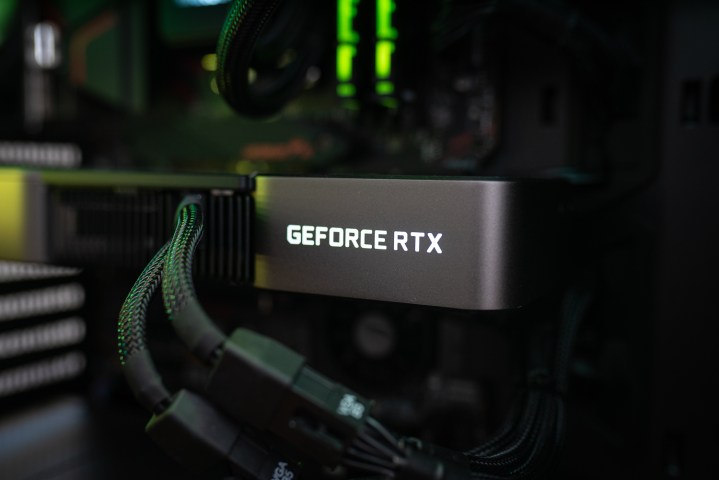While GPU prices have been trending downward as of late with the shortage and inflated prices moderating, certain popular cards — especially in the Nvidia and AMD ranges — have still remained hundreds of dollars above their respective manufacturer’s suggested retail prices (MSRP).
Now, however, prices are crashing at an aggressive rate thanks to the recent unprecedented cryptocurrency crash.-
As reported by Tom’s Hardware, GPU prices have already decreased by a significant 15% during the entirety of May. Even before Bitcoin and Ethereum prices plummeted in spectacular fashion, prices for boards were starting to approach — or even drop below in some cases — the MSRP.
Over the past week, the value of Bitcoin has nosedived by a massive 30%, while Ethereum (which is compatible with Nvidia RTX 30 cards) decreased by more than 40% — a far cry indeed from their peaks of $60,000+ and $4,000+, respectively.
The tangible effect of this state of affairs has been a massive shift for the GPU market, at least where prices are concerned.
Case in point: Tom’s Hardware reports that Nvidia’s popular RTX 3080 GPU is now available for less than $650 on eBay. Just a few months ago, this same board was selling for over $1,000. Elsewhere, the website also noticed certain listings selling six RTX 3080s units for $2,500 — that’s around $418 each.
RTX 3080 crypto mining profitability, meanwhile, has fallen off a cliff in recent days due to the continuing decline of ETH prices. After accounting for power costs, a miner would be able to generate around $0.85 on a daily basis.
In other words, it would take around 1.5 years to break even and cover the cost of the GPU itself, and that’s assuming ETH’s value stays the same — which, currently, doesn’t look likely.
As for AMD-powered Radeon graphics cards, Tom’s Hardware highlights how every single Team Red board is now available for a price less than their MSRPs, save the RX 6800 XT and RX 6800.
Here’s a closer look at current (June 15) eBay prices for Team Green and Team Red’s boards (the latter price in brackets is their eBay cost on June 1).
Nvidia:
- GeForce RTX 3090 Ti — $1,672 (-9% from $1,829)
- GeForce RTX 3090 — $1,265 (-12% from $1,438)
- GeForce RTX 3080 Ti — $1,000 (-12% from $1,134)
- GeForce RTX 3080 12GB — $936 (-2% from $959)
- GeForce RTX 3080 — $743 (-17% from $899)
- GeForce RTX 3070 Ti — $619 (-13% from $710)
- GeForce RTX 3070 Ti — $641 (-15% from $544)
- GeForce RTX 3060 Ti — $470 (-19% from $579)
- GeForce RTX 3060 — $379 (-11% from $424)
- GeForce RTX 3050 — $296 (-6% from $315)
AMD:
- Radeon RX 6950 XT — $1,270 (-21% from $1,600)
- Radeon RX 6900 XT — $774 (-12% from $875)
- Radeon RX 6800 XT — $637 (-17% from $767)
- Radeon RX 6800 — $575 (-12% from $655)
- Radeon RX 6750 XT — $560 (+10% from $511)
- Radeon RX 6700 XT — $410 (-14% from $477)
- Radeon RX 6650 XT — $372 (-7% from $400)
- Radeon RX 6600 XT — $309 (-12% from $350)
- Radeon RX 6600 — $274 (-5% from $290)
- Radeon RX 6500 XT — $159 (-17% from $192)
- Radeon RX 6400 — $170 (+13% from $150)

Will GPUs now remain at MSRP moving forward?
Generally speaking, that’s more likely. The crypto bubble that has been at the forefront of GPU news during the past two years has seen crypto miners grabbing nearly all the available stock for boards such as the GeForce RTX 3060 and the like.
Couple that with the fact that scalpers were looking to make a profit and you have a market where it was nearly impossible to acquire a card at a reasonable price.
Unless you were willing to spend an astronomical premium (the average price for a GPU during the height of the pandemic reached a staggering $1,000), you would have to wait months, or even years to upgrade or build a PC system with a decent graphics card.
Even last-gen boards and current-gen entry-level products were being re-sold for hugely inflated prices. Ultimately, it was a dire situation indeed.
And, don’t forget, the next-gen RTX 40 series and AMD Radeon 7000 range are a mere few months away from launch. As such, retailers are scrambling to get rid of existing stock, driving prices down even further.
Editors’ Recommendations




